Therapy for
Perfectionists & High Achievers
FOR INDIVIDUALS IN PENNSYLVANIA, NEW YORK, & NEW JERSEY
Do you feel like no matter how hard you try, you still feel like you’re not good enough?
Have you always felt this pressure to do everything right? Are you highly self-critical when you feel you aren’t performing at your best? On the outside, you might receive praise from colleagues and friends, but internally you’re dissatisfied with your life. You stop yourself from exploring new experiences or learning new skills for fear of not being perfect immediately.
You used to know exactly what you wanted for yourself, but after a few years, you’re wondering why you’re feeling unsettled in your career, struggling with your relationships, or lacking clarity on what’s next. You might even feel like an “imposter” at your job, living in constant fear that someone will find you out.
In order to be successful, you feel pressure to push yourself to the brink of exhaustion and throw your life out of balance. You have incredibly high standards that are often difficult to meet.
Sometimes you have no patience for others or find yourself getting angry quickly. Other times, you might identify as a “people pleaser,” putting the requests and needs of others over your own.
You might be driven by a fear of failure and can’t acknowledge the small wins. Making decisions feels paralyzing because you’re constantly afraid of making the wrong choice. You’ve worked so hard to get to where you are, but still feel unfulfilled.
What exactly is perfectionism?
Perfectionism has more to do with what's going on internally than it does with how things appear to be on the surface. Perfectionism is characterized by striving for an unreasonable level of excellence in all spheres of life, including in careers, relationships, and personal accomplishments. While pursuing excellence can be beneficial, perfectionism is rooted in insecurity and fear of failure, which frequently leads to anxiety, self-doubt, and low self-esteem.
Perfectionists have a fear of making mistakes or falling short of their own high standards, which often fuels avoidance, procrastination, and feeling overwhelmed. A perfectionist will focus on flaws and find it difficult to focus on anything else. If a mistake is made, they become harsher and more critical of both themselves and other people.
What’s the difference between perfectionists and high achievers?
Perfectionists and high achievers are sometimes confused with one another because of their shared quest of excellence. However, their approaches and attitudes differ greatly, which has a significant impact on well-being and self-worth.
While perfectionists focus on setting lofty goals based on unreasonable standards, high achievers focus on creating challenging, but achievable goals. They place more importance on growth and learning than on outcomes alone. Where perfectionists dwell on their mistakes and blame and shame themselves, high achievers believe that everyone is deserving of love, opportunity, and happiness, regardless of productivity or success. High achievers use self-compassion to guide themselves through stressful challenges.
We can work together to make changes so you can feel more connected to what you want in your career, relationships with family and friends, and personal pursuits.
Therapy for perfectionists & high achievers with me looks like:
Reflecting on what pressures from society, relationships, and work contribute to perfectionism;
Exploring fears related to shame, failure, and inadequacy;
Practicing self-compassion and learning ways to own your flaws and imperfections;
Developing skills to increase confidence around making decisions;
Reframing expectations that align with your values;
Breaking free from self-criticism and self-judgment.
My approach is person-centered and integrative, incorporating strategies that align with and amplify your strengths. Through working with me, we’ll explore your personal and professional expectations and evaluate if they’re affirming and grounding.
Through a lens that’s rooted in self-compassion, you’ll learn ways to be kinder to and make peace with all parts of yourself. You can recover from the pitfalls of perfectionist thinking and free yourself from the belief that you're not enough. Connect with your whole self and learn to live with your imperfections.






